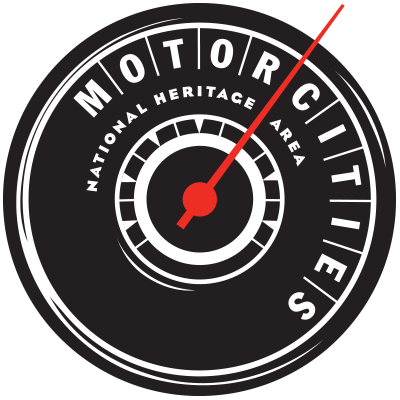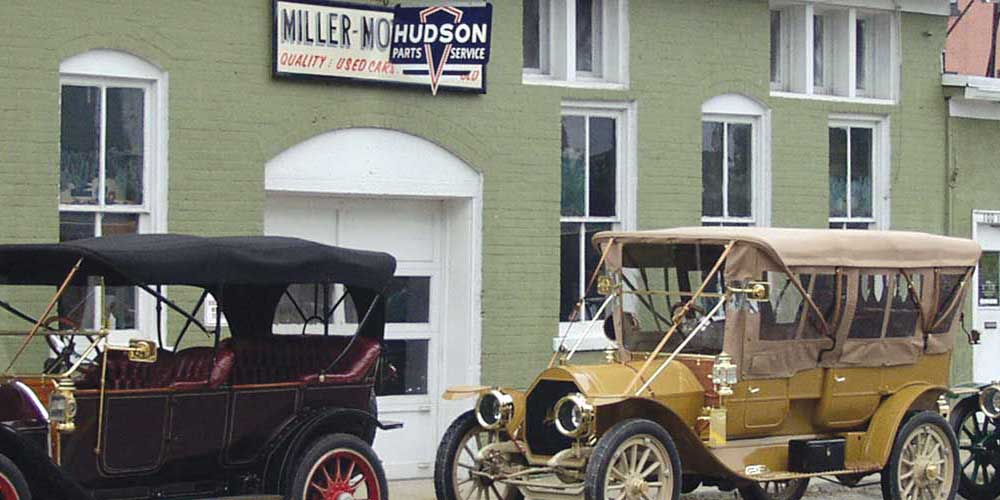By Robert Tate, Automotive Historian and Researcher
Images Courtesy of Chrysler Archives/Fugly Racing
Published 1.15.2020
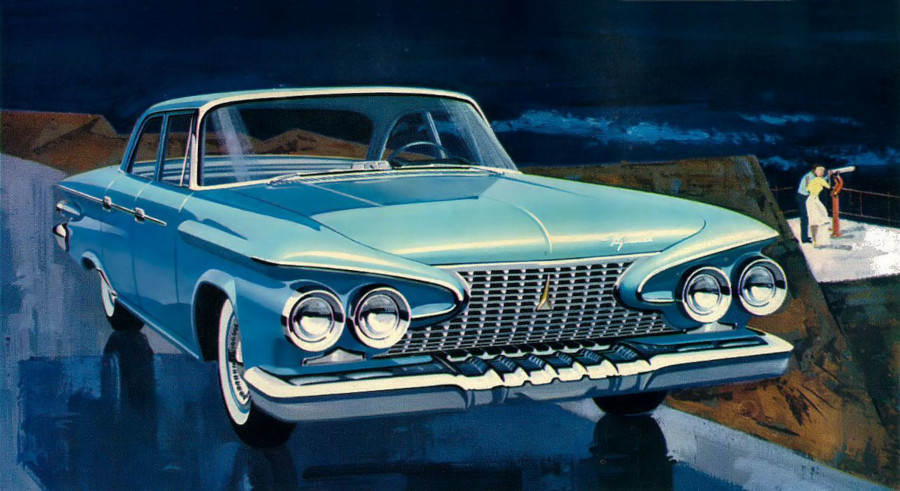 1961 Plymouth front end advertising art (Robert Tate Collection)
1961 Plymouth front end advertising art (Robert Tate Collection)
In 1961, Chrysler introduced all-new models for the Plymouth line that featured a new and different look. Chrysler even referred to it as a “striking appearance change.” That it was.
Unfortunately, many consumers did not share Chrysler’s enthusiasm with the new 1961 Plymouths. After two years of sales increases, 1961 marked a decline, dropping the industry volume down to those of 1959.
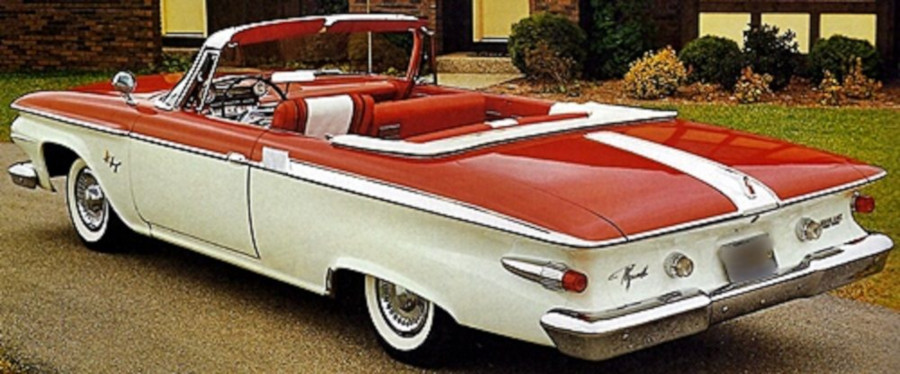 1961 Plymouth convertible (Chrysler Archives)
1961 Plymouth convertible (Chrysler Archives)
The 1961 Plymouth models were designed to achieve a completely new appearance while retaining the same basic body structure featured on their 1960 models. From its front-end sheet metal, rear quarters, rear deck and roof, all were redesigned for a more sleek and forward-thrusting look. New proportions were created by emphasizing a different front length design and using a compact theme that consumers had mixed feelings about.
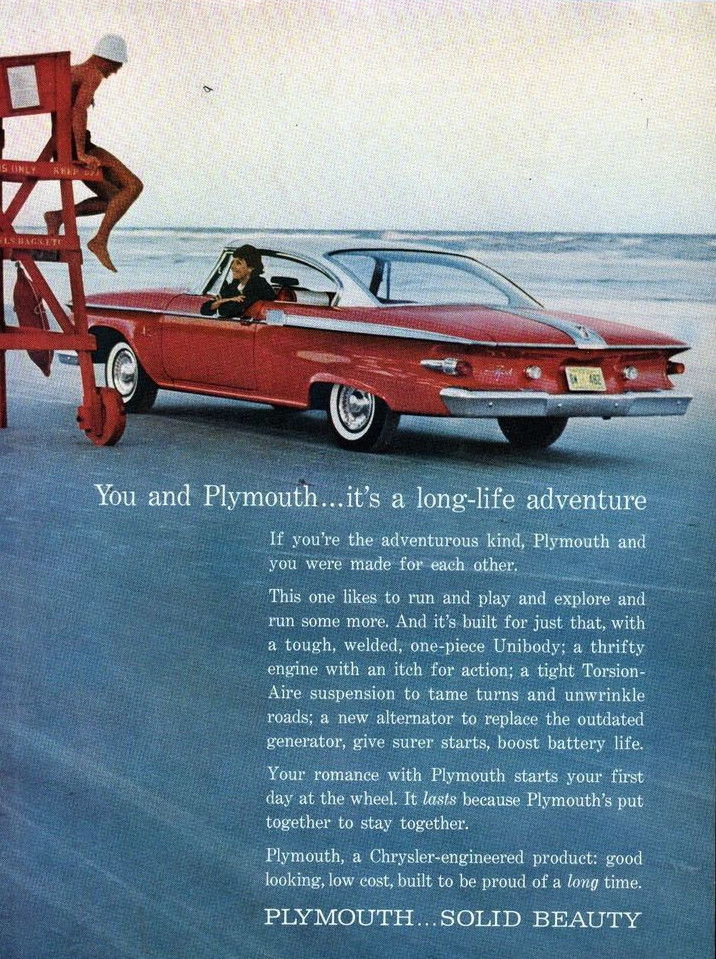 1961 Plymouth ad (Chrysler Archives)
1961 Plymouth ad (Chrysler Archives)
The front end of the 1961 Plymouths offered a more compact appearance style than their 1960 predecessors. Many consumers looked at the front end design and saw a twin-vee theme, formed at the fender eyebrows and slanting downward over the head lamps. The front grille was an anodized aluminum stamping that contained a sculptured vertical bar design look.
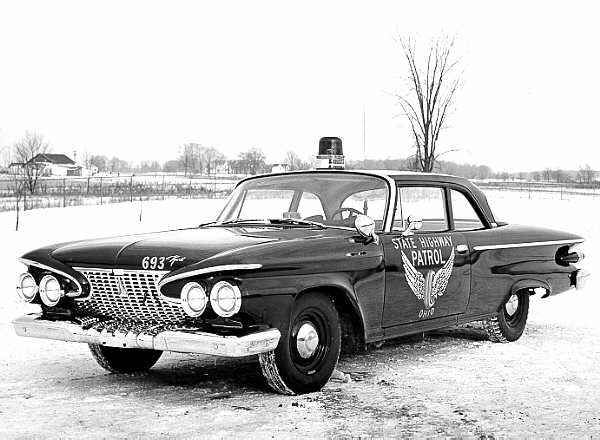 1961 Plymouth highway patrol vehicle
1961 Plymouth highway patrol vehicle
From the side, the 1961 Plymouth models offered a new silhouette style theme that was different compared to most of the other new cars introduced to the public at the Detroit Auto Show. Another interesting design feature was the new taillights, which were housed in a pod-type nacelle. On the Savoy and Belvedere models, the pods were painted in the same body color as the vehicle. On the Fury models, they were chrome-plated.
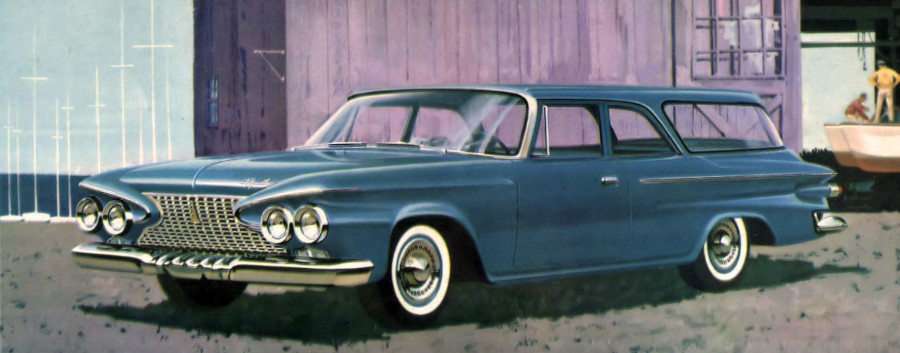 1961 Plymouth Deluxe station wagon (Robert Tate Collection)
1961 Plymouth Deluxe station wagon (Robert Tate Collection)
Plymouth offered the Belevedere, Fury, Savoy, and the Custom and Deluxe Suburban station wagon models for the consumer market in 1961. Many companies and law enforcement organizations used 1961 Plymouths for their fleet operations. For example, the Plymouth taxicab models used the Savoy as a base with a six-cylinder or standard V-8 engine. Plymouth had a great reputation for building taxicabs. Law enforcement also liked Plymouth police service models that offered 230 horsepower as standard or an optional 325-horsepower engine. Plymouth also introduced an emergency police wagon as a four-door, six passenger model only. They were used for civil defense units or as ambulances; its second seat could fold down to accommodate over 95 cubic feet of space for carrying supplies and equipment. They became very popular with many hospitals.
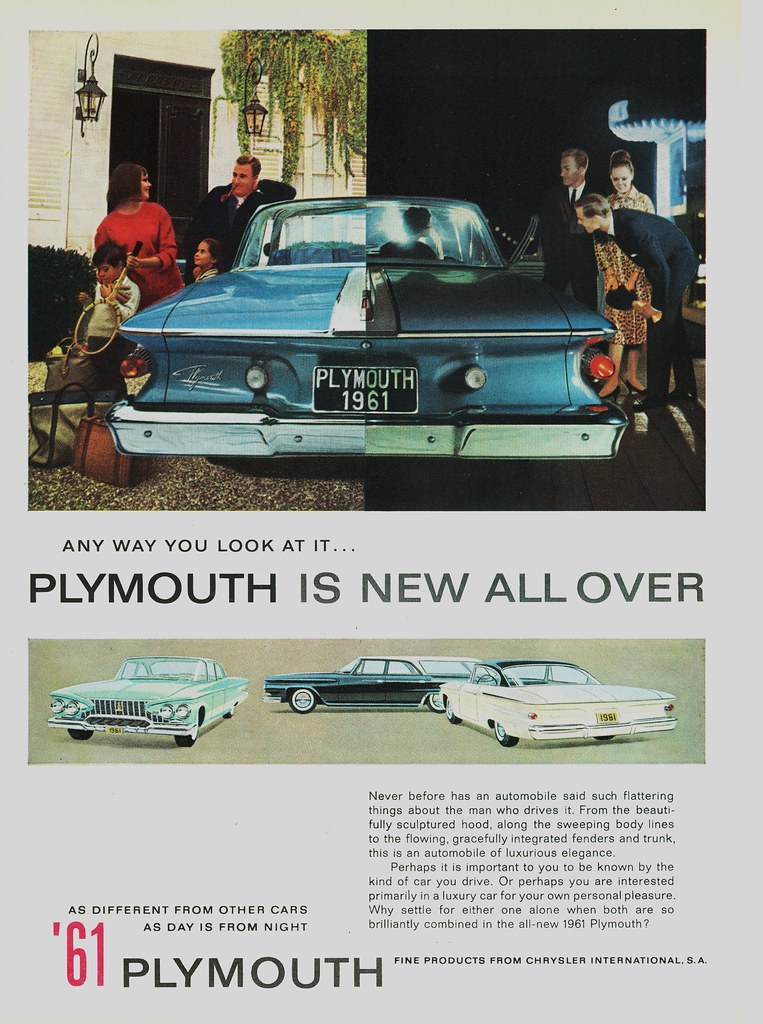 1961 Plymouth magazine ad (Chrysler Archives)
1961 Plymouth magazine ad (Chrysler Archives)
The 1961 Plymouth Fury convertibles only had a factory run of 6,948 units and were priced at $2,969. The Plymouth Savoy models offered only two body types, both of which available with six cylinder or V-8 engines. The Fury models had distinctive signatures that included the Plymouth symbol.
The 1961 Plymouths were designed under the direction of Virgil M. Exner, who was in his final days leading the Chrysler design department. Elwood Engel was brought in to take Exner’s place.
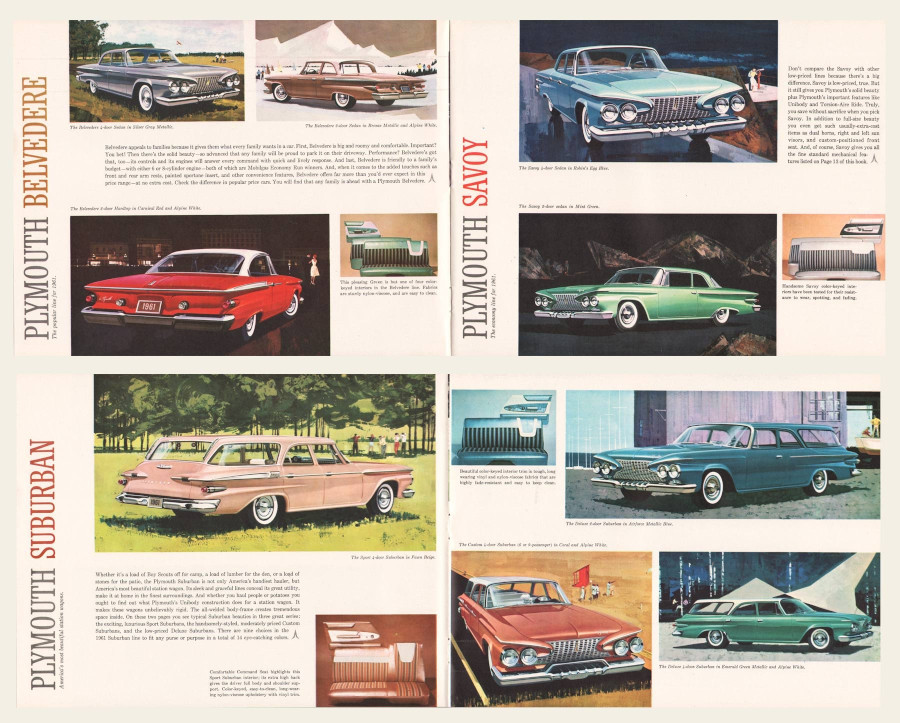 1961 Plymouth sales brochure (Chrysler Archives)
1961 Plymouth sales brochure (Chrysler Archives)
Plymouth weak sales performance in 1961 caused them to fall to seventh place among domestic brands. Today, however, interest in the these models has been revived by some fans, like the Fugly Racing team, which used a 1961 Plymouth Savoy in the factory experimental (FX) category of drag racing called nostalgia super stock (NSS). NSS is a category that emulates the super stock racing of the early 1960s.
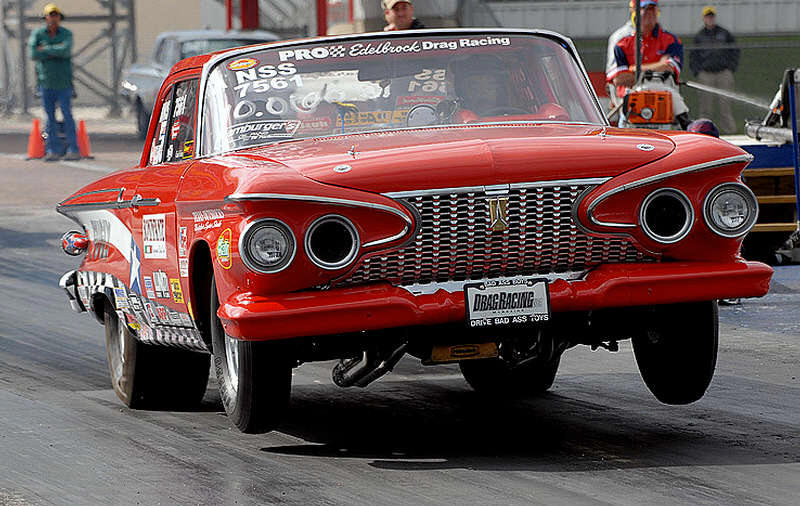 1961 Plymouth Savoy drag racer (Edelbrock Drag Racing)
1961 Plymouth Savoy drag racer (Edelbrock Drag Racing)
In conclusion, the 1961 Plymouths were not very popular among consumers, but many automotive fans consider them an iconic design today.
Bibliography
Butler, Don. “The Plymouth and DeSoto Story.” Crestline Publishing, 1978.
Kunz, Bruce. “1961 Plymouth Sport Fury - You May Call It Odd, It’s Ok.” StlToday Brand Ave Studio.
Chrysler Corporation Engineering Division, May 1960. The National Automotive History Collection.

